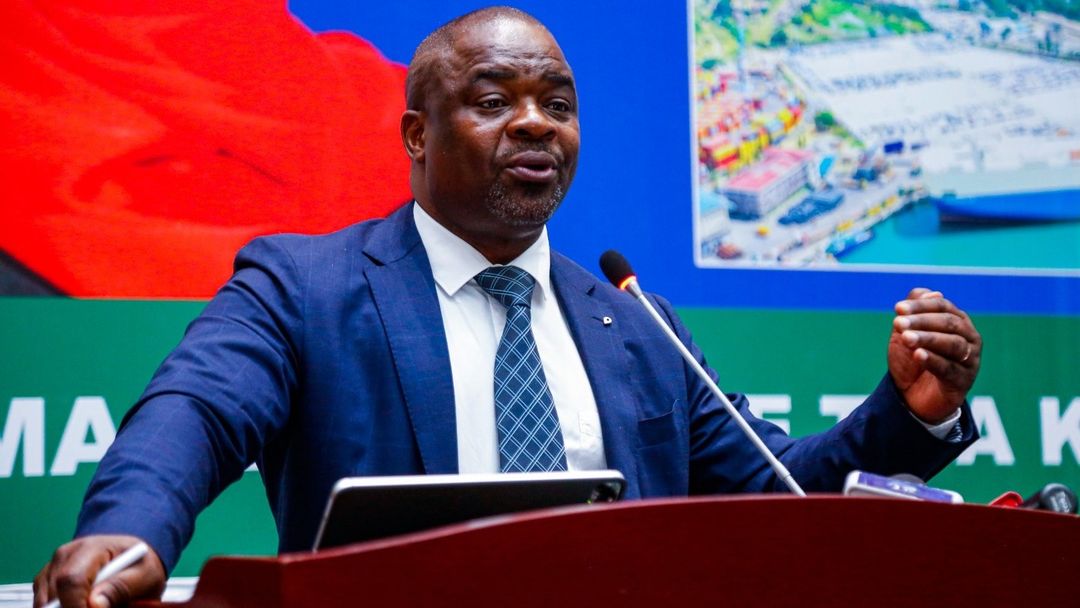Tanzania eyes more revenue from minority shareholdings

Treasury Registrar Nehemiah Mchechu. PHOTO | FILE
What you need to know:
- The government is seeking to raise the contribution of about 50 companies to its non-tax revenue to ten percent in the next five years
Dar es Salaam. The government is seeking to raise the contribution of about 50 companies to its non-tax revenue to ten percent in the next five years.
The companies are those in which the government is a minority shareholder.
Currently, the 50 companies contribute about three percent of the government’s non-tax revenue of about Sh3.5 trillion.
This suggests that together, the firms contribute approximately Sh105 billion in non-tax revenue.
Treasury Registrar Nehemiah Mchechu is optimistic that going by President Samia Suluhu Hassan’s directives, it is possible to raise the contribution of the 50 companies to non-tax revenue to ten percent within five years.
This means that if the 2023/24 projections for non-tax revenue collections are to be put on the scale, then the 50 companies should be contributing at least Sh351 billion in five years.
Mr Mchechu was speaking on Wednesday during the opening of a three-day meeting held in Kibaha, Coast Region, between the Treasury Registrar’s office and the boards of directors and CEOs of institutions and agencies in which the government has minority shareholding.
“The President has called for a significant increase in non-tax revenue at all levels of government. Currently, non-tax revenue is at three percent, and she wants this to reach 10 percent within five years,” he said.
In light of this need, the Treasury Registrar’s office, which is the main overseer of non-tax revenue, for the first time organised a meeting with the companies’ managements to discuss various adjustments that they collectively need to implement.
Mr Mchechu said it was also an opportunity for the government to listen to the group with significant stakes and address the challenges they faced so that they could jointly solve them.
“We believe we will reach the 10 percent contribution goal because we are well-prepared and making progress under two ministries (Investment and Planning and Finance), which oversee this matter.
“When you talk about the country’s revenue, it is divided into two main parts, namely tax revenue and non-tax revenue. And as the Registrar’s Office, we have a significant role in overseeing non-tax revenue because it comes from dividends and profits from public entities and government investments,” he said.
Mr Mchechu added that his office was committed to implementing President Hassan’s directive to increase non-tax revenue at all levels of government investment.
Opening the meeting on behalf of the Chief Secretary, Finance permanent secretary Natu Maamry said the three days would be historical for Tanzania’s quest for economic growth involving companies in which the government hold minority shareholding.
It was historical because such a meeting was taking place for the first time in Tanzania’s history, she added.
“Bringing the Treasury Registrar in one room together with the boards of directors and chief executives of firms in which the government has minority shareholding is a good continuation of upholding the value of partnership and cooperation between the government and investors,” Dr Maamry said.
It is worth noting that the meeting was taking place at a time the nation was marking three years since President Samia Suluhu Hassan came into office, she added.
President Hassan opted to take the country through reconciliation, reconstruction, reforms and rebuilding, popularly known as the 4R’s, and the government was pleased to note that he Office of the Treasury Registrar was playing a key role in reforms and rebuilding, Dr Maamry said.
“We have been following keenly the push for reforms around state-owned enterprises (SOEs) and all public and statutory cooperatives (PSCs) in the country. We are very confident in the efforts put forward so far. These reforms are paramount to rebuilding our economy through these entities as a path towards a more resilient economy.”
Dr Maamry said the country takes stock of Vision 2025 and plans for Vision 2050; rigorous board representation for the purpose of aggregating Tanzania’s economic position cannot be overemphasised.
“The government has bestowed an enormous amount of trust in you as a representative handler of her investments in the minority stake.”
The main goal of the meeting was to make sure that institutions and agencies, where the government owns shares, recognised and understood that their role was to oversee and safeguard the interests of the country, Dr Maamry added.
“Together, we want to see these companies improve in their contributions and also pull up those that have not been contributing at all due to various reasons. We want the government to receive sufficient dividends and bolster its fund to enable it to implement development and social welfare of its people.”




